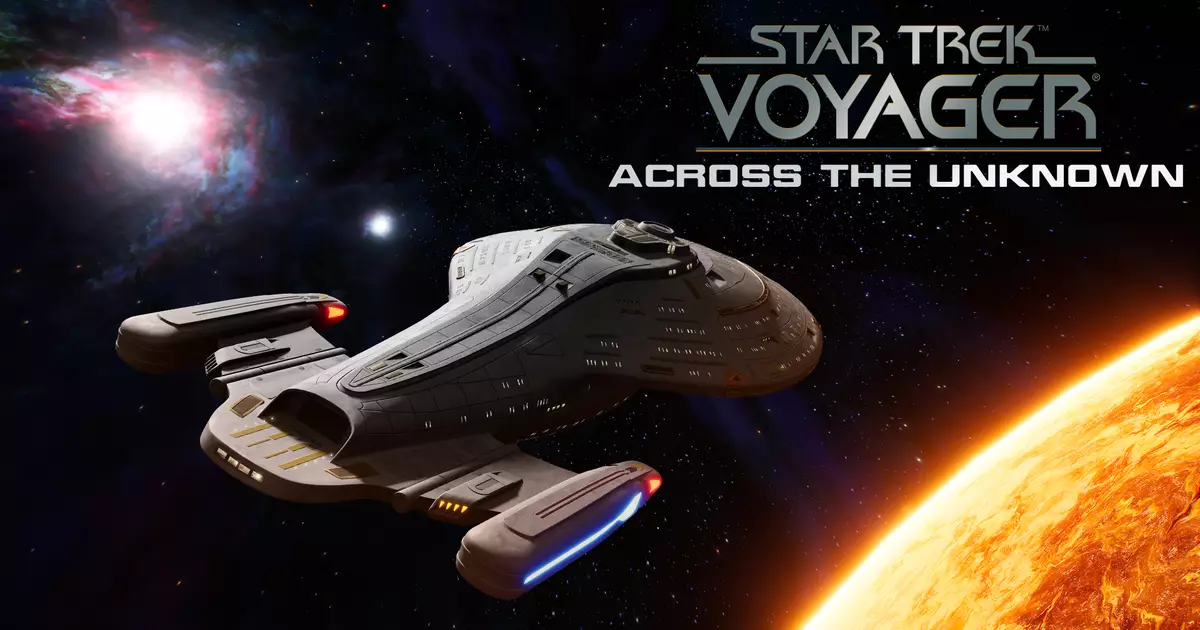The announcement of *Star Trek: Voyager – Across the Unknown* marks a daring leap into uncharted gaming territory for fans of the legendary Voyager series. Historically celebrated for its storytelling, character development, and philosophical musings, the franchise now invites players to step into the shoes of the crew within a fusion of survival strategy and narrative-driven gameplay. This fresh approach challenges the traditional formula, aiming to blend beloved sci-fi lore with engaging mechanics that emphasize decision-making, management, and exploration.
What makes this venture stand out is its commitment to capturing the essence of Voyager’s voyage through the Delta Quadrant while exploring new, “what-if” scenarios. It seems the developers want players not just to relive familiar adventures but to craft their own stories—an ambitious goal that could either breathe new life into the series or risk diluting its core charm by prioritizing gameplay complexity over narrative depth. However, the core premise of managing systems, fostering crew relations, and making moral choices suggests a game that aims to be as much about strategic foresight as emotional resonance.
Gameplay Mechanics and Nostalgic Allure
The game’s mechanics appear to be a hybrid, combining ship management akin to *XCOM*, resource allocation reminiscent of survival sims, and roguelite randomness that ensures no two playthroughs are the same. The inclusion of a base-building element is particularly intriguing, as it hints at long-term customization and adaptation—an aspect that could deepen immersion andplayer engagement. One can imagine upgrading the Voyager, adding facilities that reflect the crew’s needs and the narrative twists that unfold.
The portrayal of the starship interface—with a dollhouse-like HUD and bridge-like visuals—evokes a nostalgic charm, anchoring players in the universe they cherish while adding a visually fresh perspective. Yet, the gameplay’s depiction of top-down solar system navigation feels somewhat disconnected from the grandeur of the galaxy. Rather than evoking awe or wonder, some might find the scale diminutive and limiting, potentially undermining the epic scope that Voyager traditionally represented.
What truly excites fans are the away missions and crew dynamics, which promise strategic choices that impact the story. Selecting team members based on their skills and balancing risk versus reward echoes classic tactical decisions. This hints at an experience that values player agency—whether to prioritize safety, scientific curiosity, or aggression—adding layers of complexity that could elevate game design beyond mere mechanics.
Potential for Narrative Innovation and Fan Engagement
The pièce de résistance of this project lies in its narrative potential. The developers tease scenarios where Janeway could become Borg Queen or the Doctor could command the ship—a tantalizing glimpse into how far they’re willing to push canonical boundaries. Such flexibility might allow players to explore alternate realities and unravel stories untouched in the TV series, satisfying the insatiable curiosity and desire for novelty intrinsic to many fans.
However, this artistic freedom comes with risks. Straying too far from established lore may alienate purists, and the roguelike elements—where iconically beloved characters might meet untimely ends—could evoke frustration rather than excitement if not balanced carefully. The challenge will be in maintaining emotional stakes without compromising gameplay randomness, a tightrope walk that will define the title’s reception.
While the game’s developers have traditionally focused on comedic adaptations of Asterix, their venture into space strategy feels ambitious—perhaps unexpectedly so. Whether they can translate their design skills into a compelling sci-fi experience remains to be seen, but their willingness to experiment suggests a passion for storytelling beyond conventional confines.
In the end, *Star Trek: Voyager – Across the Unknown* promises more than just another game. It’s a bold experiment in interactive storytelling that taps into deep nostalgia while daring to reinvent familiar narratives. For fans and newcomers alike, it could serve as an innovative portal into Voyager’s universe—if executed with care, courage, and a genuine respect for what made the series special in the first place.

